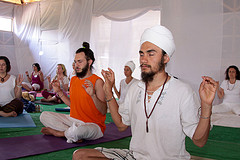GUYSIDE: The king is dead, long live the king!
 This is a bit of a valedictory for Guyside. After 54 happy posts here on FlashFree, we’re at the end of the road. Asking guys to contribute to a site about menopause was a bit of a courageous and audacious move, which fits this blog’s major-domo Liz Scherer quite well.
This is a bit of a valedictory for Guyside. After 54 happy posts here on FlashFree, we’re at the end of the road. Asking guys to contribute to a site about menopause was a bit of a courageous and audacious move, which fits this blog’s major-domo Liz Scherer quite well.
And as the writer of most of these posts, I am glad she asked me, and addicted enough to doing this that I’ll be continuing the Guyside tradition on another site, while the archives will always be available here, with my posts, as well as the other Guyside contributors Danny Brown and Rich Becker.
Want to know more?
Listen to this Skype conversation between Liz and I. Happy and Healthy New Year, and stay tuned for more!
Image: CC-licenced by Flickr user Mark Ramsay
Read MoreGUYSIDE: Keep a weather eye out for dubious claims.

Take a hint from Pepe, and be skeptical of medical claims — the more grandiose the more skeptical!
I was watching my local newscast recently and heard about an innovative new treatment for “winter blues”, or Seasonal Affective Disorder. As someone who strongly dislikes 4 pm sunsets, I was interested enough to keep watching.
The treatment is a device called the Alpha LED Light Spa. This device, which resembles a tanning bed, offers a variety of programs that combine light, heat, and oxygen to treat a variety of symptoms. The owner of this particular device told the reporter that it was an effective treatment for more than 1000 disorders — and that REALLY got me interested. Here’s the list:
“Energizing Whole Body, Mind and Spirit, Cold/Flu, Sleep/Insomnia Improvements, Depression, Seasonal Affective Disorder, Mind Clarity, Meditation, Pain Relief, Lymphatic drainage, Wound Healing , Immune Boost, Stress Relief, Detoxification, Weight Loss, Cellulite Treatments, Skin Care – Acne Treatments, Skin Care – Anti-Aging, Addictions, Balances hormones, Migraine relief, Soothes nervous system, Lowers cholesterol, Infertility, Psoriasis, Anxiety, Inflammation, & more.”
Unfortunately, there’s no links to evidence on the site. And I haven’t been able to discover any in my time looking around. There is little doubt that SAD, disruptions in sleep due to circadian rhythms, and depression can be treated effectively by light therapy. But on the face of things, it seems unlikely that this device would be able to successfully treat more than 1000 problems.
Claims like this need to be taken skeptically, not least because at the Ottawa spa offering these treatments, it’s $75 per session.
And there’s no shortage of claims that need to be given the side-eye. Also this week, an article in the British Medical Journal looked at medical recommendations made on the Dr. Oz show and The Doctors. In the case of Dr. Oz, fewer than half of the medical recommendations provided had any sort of supporting evidence backing them up; 1 in 6 were actually contradicted by medical evidence.
It’s easy to make a medical claim, and ones that fit into what we want to hear (eat this and your belly will magically shrink!) are much more readily consumed by us humans than ones that are a little more work (eat less, move more, and stop with the Big Gulps).
You owe it to yourself to ensure the actions you take to preserve and improve your health are ones that have a basis in fact.
For those who’ve just finished celebrating Chanukah, and for those who are anticipating a visit from Santa, Merry Christmas and Happy Holidays!
(Photo is CC-licenced from Flickr user Yiie)
Read MoreGUYSIDE: salty talk about your diet
 I’ve been keeping an eye on my blood pressure these days. With a family history of hypertension, it just makes sense. And so far, my results are good. A while ago, I stopped at a local pharmacy and used their automated machine and saw a couple of readings heading into the high range. But more accurate readings have put it further down in the normal range, so that’s good.
I’ve been keeping an eye on my blood pressure these days. With a family history of hypertension, it just makes sense. And so far, my results are good. A while ago, I stopped at a local pharmacy and used their automated machine and saw a couple of readings heading into the high range. But more accurate readings have put it further down in the normal range, so that’s good.
But when I looked at my profile for hypertension risk factors, I was struck that there wasn’t a great deal I could do. The major risk factors for hypertension, according to the Mayo Clinic, are:
- Age. (Hypertension is more common in men around 45 or so, and becomes more common in women around 65)
- Race. (High blood pressure is particularly common among blacks)
- Family history.
- Being overweight or obese.
- Not being physically active.
- Using tobacco.
- Too much salt (sodium) in your diet.
- Too little potassium in your diet.
- Too little vitamin D in your diet.
- Drinking too much alcohol.
- Stress.
I do pretty well on most of these. But of the ones I can control, the one about sodium sticks out. As a man and a lover of food that I KNOW is bad for me, I know that I can be the author of my own hypertensive misfortune. Burgers, fries, onion rings, chicken wings — it would be foolish to pretend they don’t have a lot of sodium in there. But there are a ton of foods out there that you wouldn’t expect to have high sodium levels.
We often have pizzas on naan bread for a quick and easy weekday meal. On top, prosciutto, pears, brie, and basil. I knew the prosciutto would be high in sodium — after all, it’s a cured meat. But the naan bread itself has a surprising amount of sodium. Between those two ingredients, one naan pizza is likely delivering more than half my daily allowance of sodium.
Chicken breasts can be injected with brine during processing, increasing their sodium content drastically. A slice of process cheese might have 20% of your daily allowance of sodium!
If you have french fries, you expect them to be salty. But if you add a tablespoon or two of ketchup, you’re looking at 400 mg of sodium just in that!
And none of this counts restaurant or takeout food, which can be extremely high in sodium. You can see just how easy it would be to end up with more than your roughly 2,500 mg of sodium per day:
- 350 mg: a bowl of Raisin Bran.
- 870 mg: a bagel and cream cheese
- 1220 mg breakfast
- 1600 mg: 100 grams of deli ham on white bread with mustard.
- 1600 mg lunch
- 393 mg: baked chicken breast
- 418 mg: baked potato
- 460 mg: cup of canned peas
- 1271 mg supper
- 744 mg: 1/2 cup of salsa
- 420 mg: 24 tortilla chips
- 1164 mg snack
That’s a whopping 5255 mg of sodium, more than twice the recommended amount in a day, without a single shake of your salt shaker, without eating out, and with lots of things that seem healthy at first glance. (Sodium figures from the Fat Secret website)
You can’t change your age, your race, or your family history of hypertension. But if you start to track things like sodium, you do see where you can help prevent hypertension, or if you have it, improve it without resorting to drugs. And that’s a good thing.
(Pretzel photo is a CC-licenced image from Flickr user Jenn Durfey)
Read MoreGuyside: a sad and beautiful world.
From my perch in Canada, the decision in Ferguson felt like a tragedy, or perhaps a series of tragedies.
First and foremost among those tragedies is the death of a young man. In a better world, Michael Brown would still be alive.
Next among the tragedies of this case is the loss of yet more faith in the US court system by the African-American community. If people can’t feel that their judicial system will treat them fairly, then eventually some will find extrajudicial means to mete out justice as they see fit. For us, in the relatively wealthy parts of the Western world, that is a tragedy.
Guyside: Do you have recovery time covered in your exercise?
Yoga. How hard can that be, right? Just a bunch women accessorizing and lying around on mats, right?
Uh-uh. As I type this, my large thigh muscles are complaining, and my abdominal muscles are providing harmony vocals. All this after an “ambitious” session of Kundalini yoga on Monday. As in so many instances, my pain is my fault, for two reasons:
- I have had a fairly indolent fall, with not nearly the same level of activity — yoga or otherwise — that I might expect normally.
- Being reasonably competitive and interested in seeing what others were doing in the class, I wanted to show that I wasn’t some Kundalini newbie. So I pushed myself.
And here I sit, waiting for my muscles to stop being mad at me.
Time was that such foolhardiness on my part wouldn’t have been NEARLY as big a deal. Gluttony, sudden spurts of exercise, alcoholic overindulgence, nights with very little sleep — it all was part of the game, and I (or at least I think) was able to perform quite fine under all sorts of self-imposed constraints. Now, it’s a different story. I can have late nights, but there will be a price to pay. The days of 80-chicken-wing sprees accompanied by pitchers of beer? Gone. And as my yoga experience has shown me (not for the first time), I need to gauge my level of effort when exercising and prepare for recovery time.
And it’s not just me. Science says so. An article in the Encyclopedia of Sports Medicine and Science states baldly that “The recommended dose of exercise should do no more than leave the participant pleasantly tired on the following day. Recovery processes proceed slowly, and vigorous training should thus be pursued on alternate days.” And a Harvard Men’s Health Watch article points out (too late for me this time) that it’s best to “Work yourself back into shape gradually after a layoff, particularly after illness or injury.”
This week, I brought my bike in from the garage to set it up for winter training. If I have learned one thing from Monday’s yoga class, it’s that while I can do stuff, I can do stuff better if I do it with an eye to gently bringing myself up to speed, rather than exploding out of the gate.
And the benefits of physical activity are so great and diverse that there’s no argument against moving a bit more. Now, can someone pass the Ben-Gay?
Photo: cc-licenced image from Flickr user Jamie Ramos.
Read More






